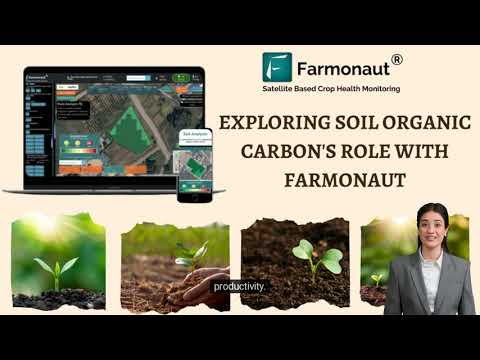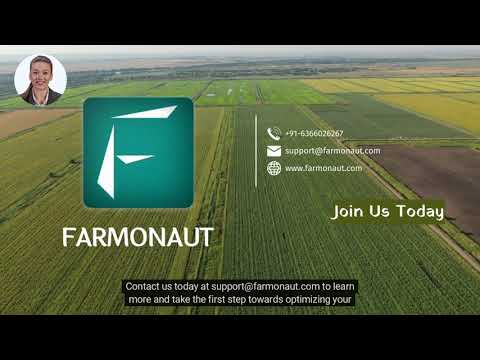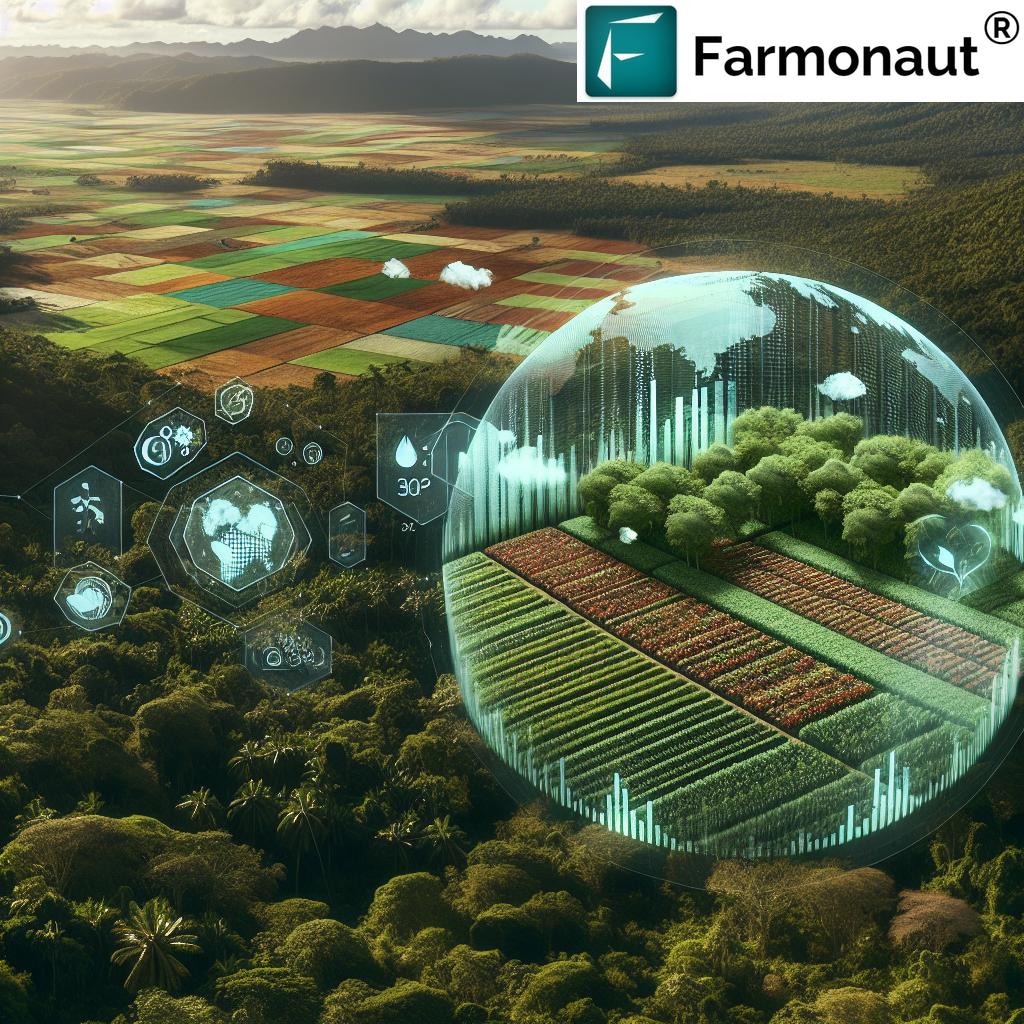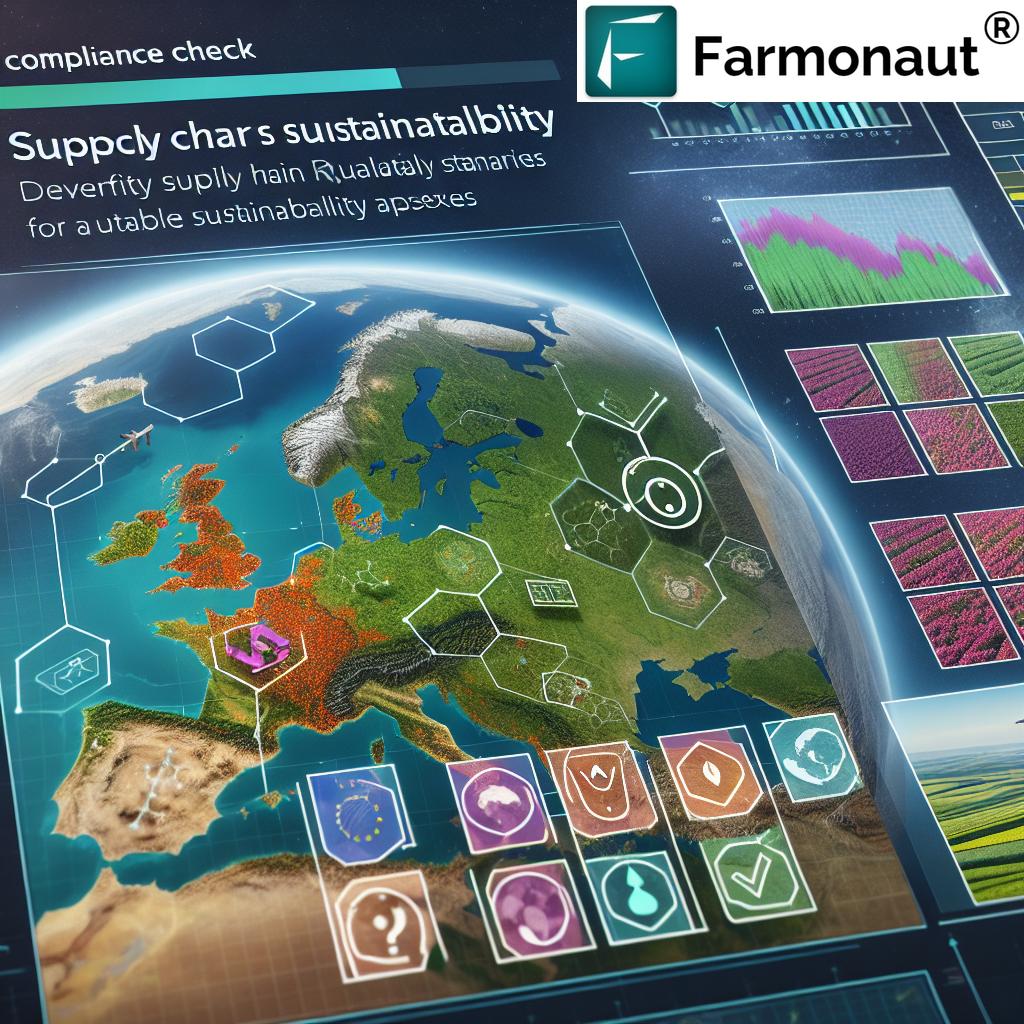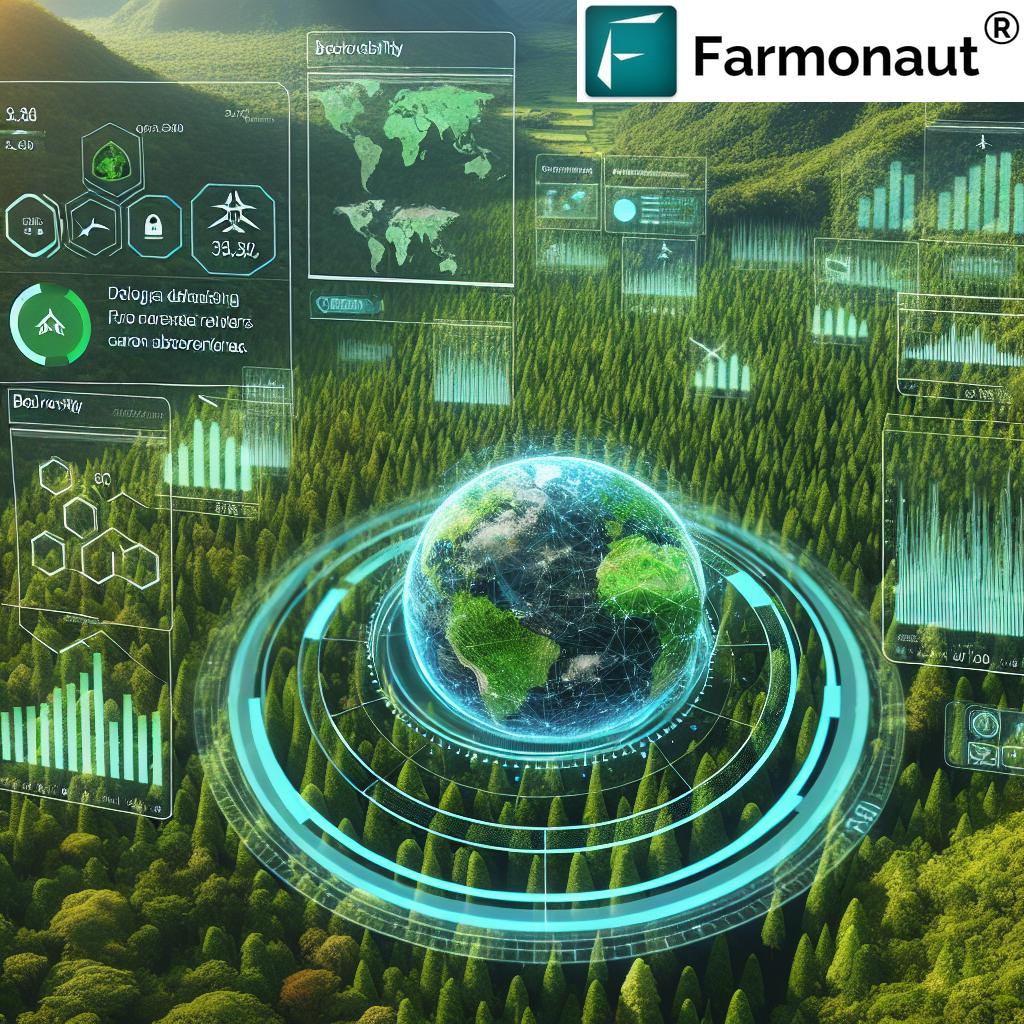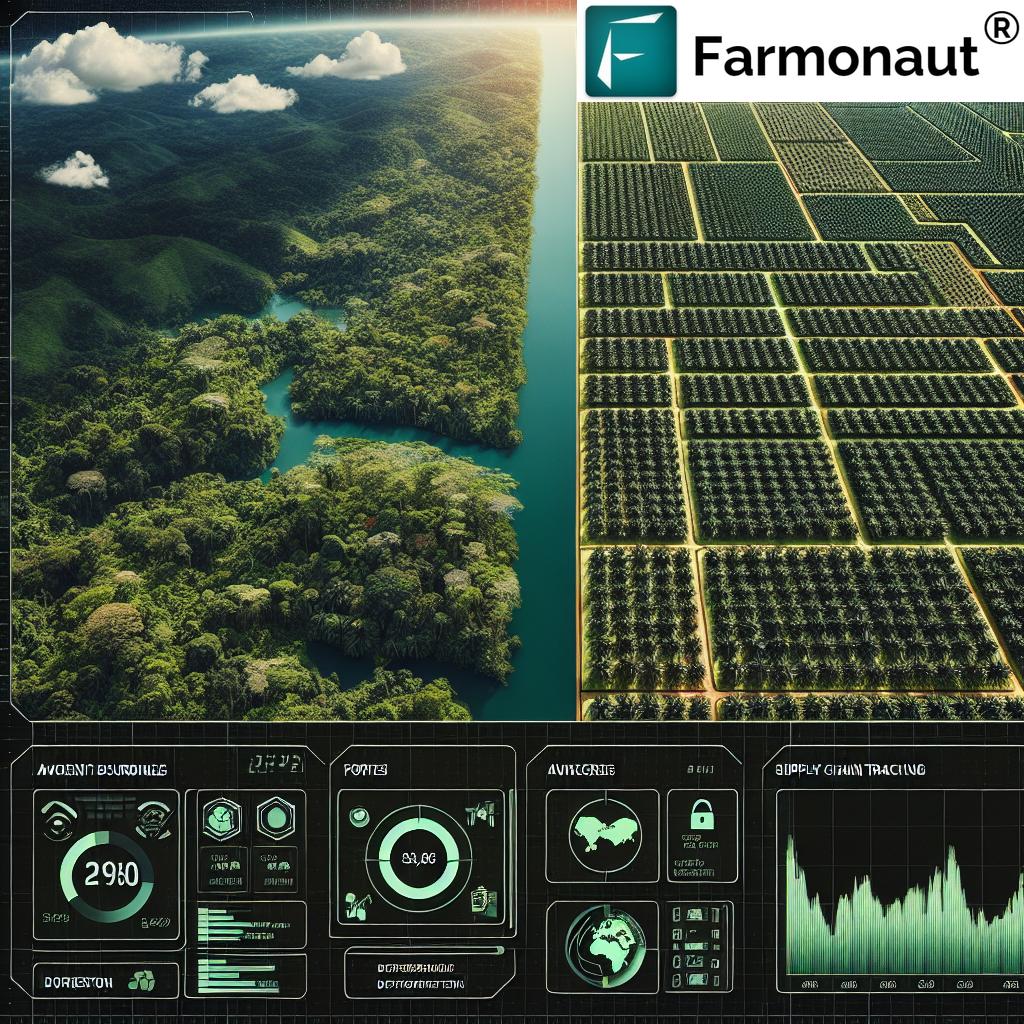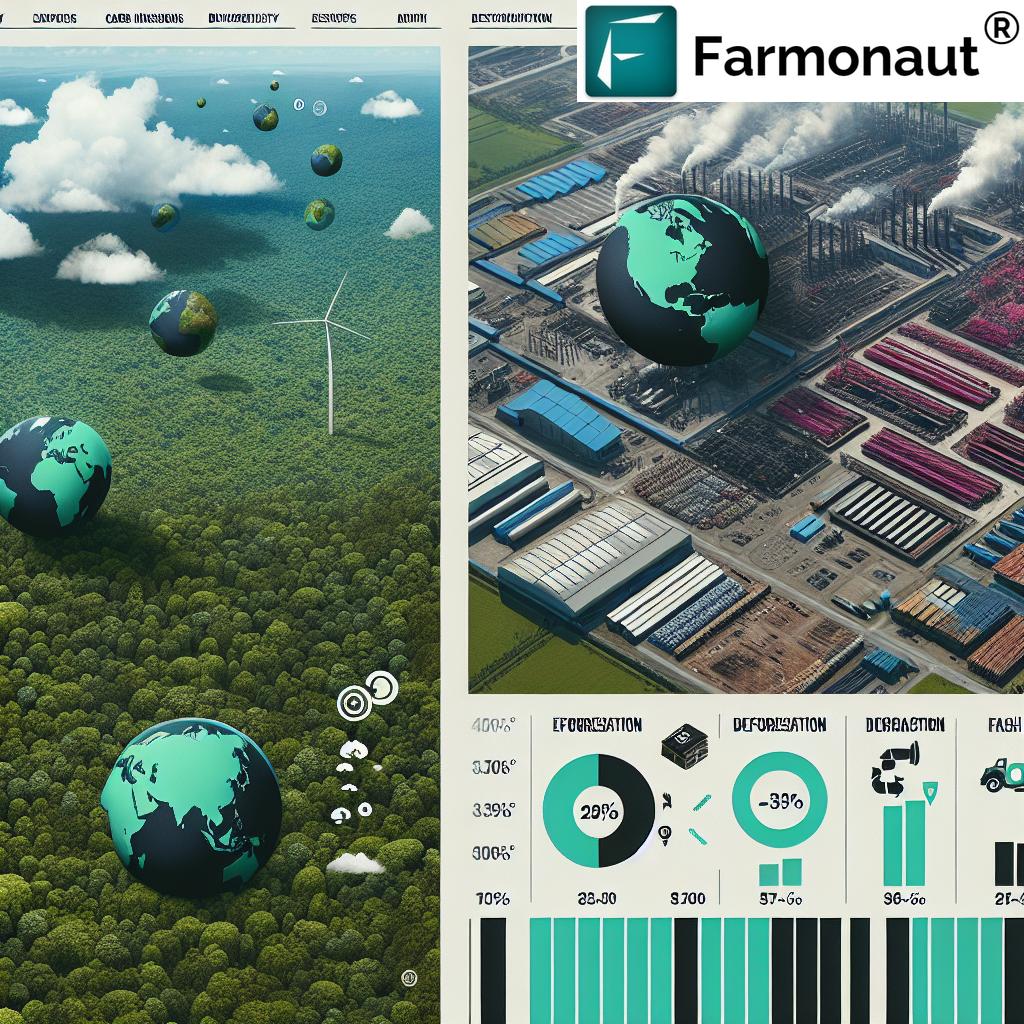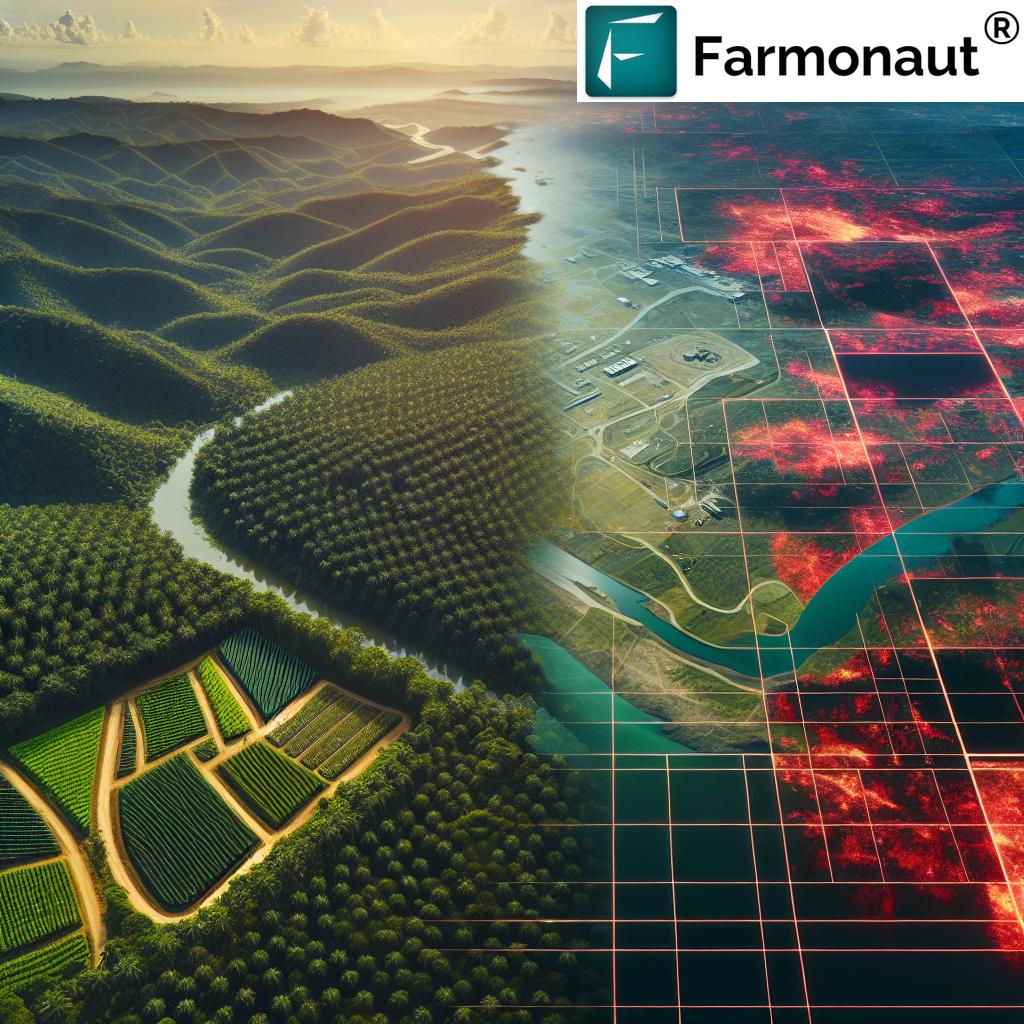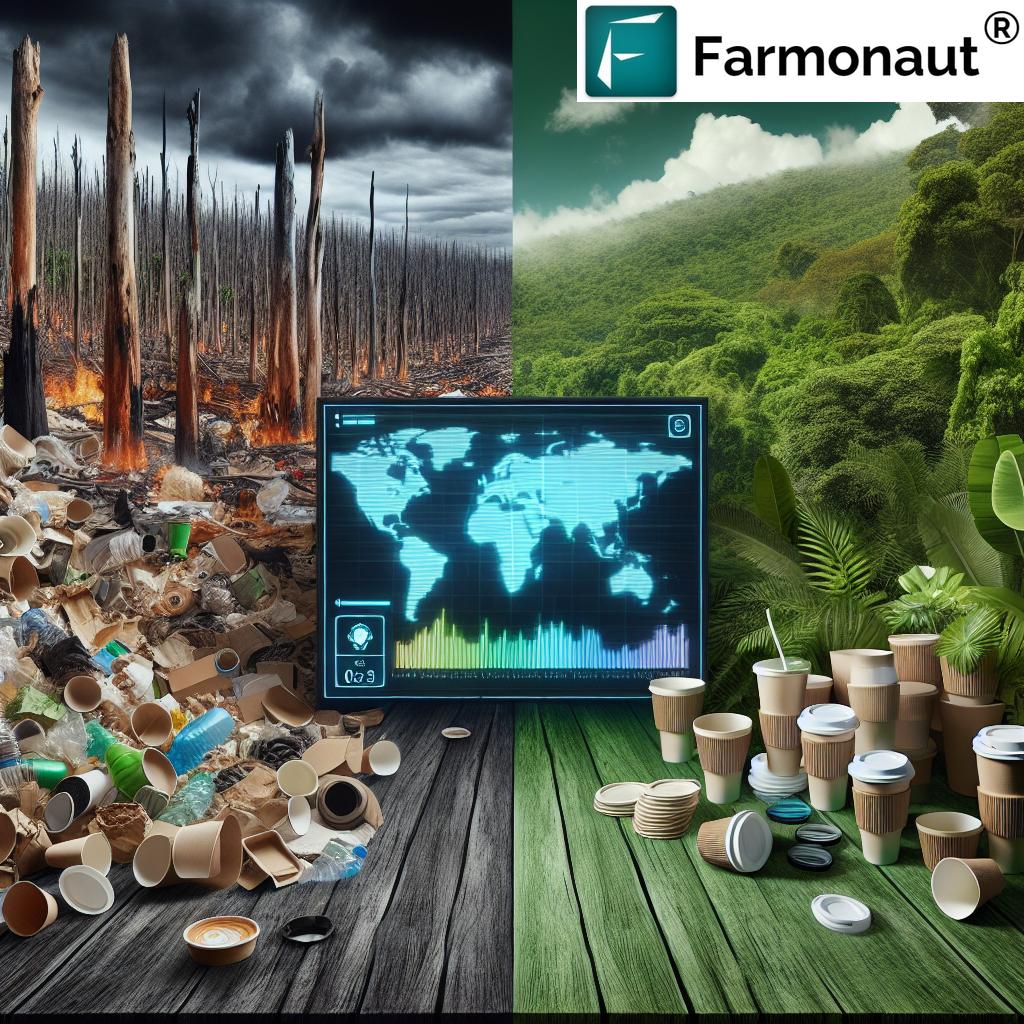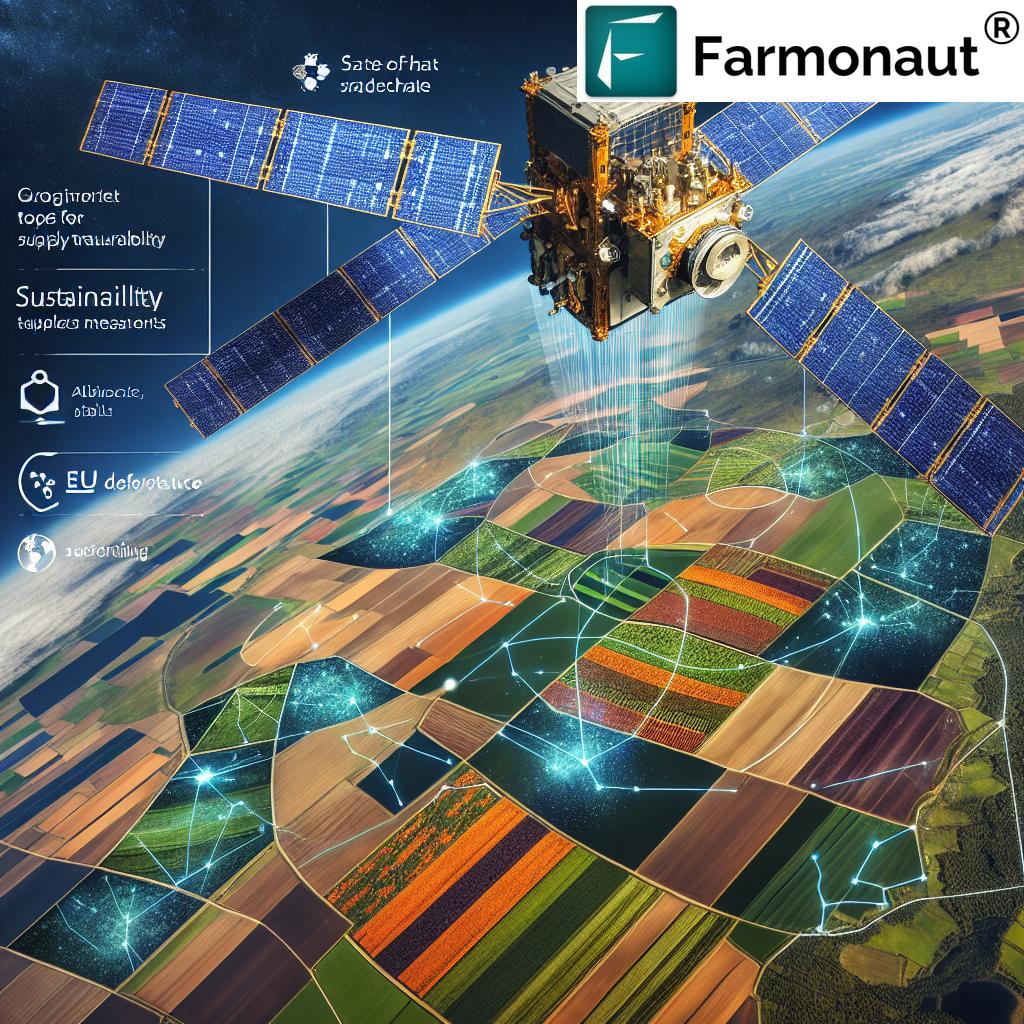Sustainable Coffee Revolution: How Vietnam’s Farms Are Embracing EU Deforestation Regulation Compliance
“Vietnam’s coffee industry aims to reduce its carbon footprint by 30% through sustainable farming practices by 2025.”
In the lush landscapes of Vietnam, a quiet revolution is brewing – and it’s not just in our coffee cups. As the world’s second-largest coffee exporter, Vietnam is at the forefront of a significant shift towards sustainable coffee production. This change is driven by the impending EU Deforestation Regulation, a landmark policy aimed at ensuring that products sold in the European Union do not contribute to deforestation or forest degradation.
Today, we’ll explore how Vietnam’s coffee farms are adapting to these new sustainability requirements, implementing climate-smart agriculture practices, and leveraging innovative technologies to meet the challenges of the future. From the misty highlands of the Central Highlands to the bustling ports of Ho Chi Minh City, we’ll uncover the stories of farmers, cooperatives, and industry leaders who are redefining what it means to produce coffee responsibly.
The EU Deforestation Regulation: A Game-Changer for Coffee Production
The EU Deforestation Regulation, set to come into effect in the near future, represents a watershed moment for the global coffee industry. This regulation aims to ensure that coffee and other commodities entering the EU market are not linked to deforestation or forest degradation. For Vietnam’s coffee sector, this presents both a challenge and an opportunity.
- Stricter traceability requirements
- Enhanced due diligence processes
- Increased focus on sustainable farming practices
- Potential market advantages for compliant producers
As we delve deeper into the impact of this regulation, it’s crucial to understand how it’s reshaping the coffee supply chain from farm to cup.
Climate-Smart Agriculture: The Future of Coffee Farming
In response to the EU Deforestation Regulation and broader sustainability concerns, Vietnam’s coffee industry is increasingly turning to climate-smart agriculture practices. These innovative approaches not only help farmers comply with new regulations but also improve resilience to climate change and enhance productivity.
Some key climate-smart practices being adopted include:
- Agroforestry systems that integrate coffee with shade trees
- Precision irrigation techniques to conserve water
- Use of organic fertilizers and pest management strategies
- Soil conservation methods to prevent erosion and maintain fertility
By implementing these practices, Vietnamese coffee farmers are not only protecting the environment but also securing their livelihoods for the future.

The Role of Certification Programs in Driving Change
Certification programs play a crucial role in guiding and verifying sustainable coffee production practices. These programs are instrumental in helping Vietnamese coffee farms meet the requirements of the EU Deforestation Regulation while also addressing broader sustainability challenges.
“Certification programs have helped protect over 2 million hectares of rainforest in coffee-growing regions worldwide.”
Let’s take a closer look at how different certification programs are impacting Vietnam’s coffee industry:
| Certification Name | Focus Areas | Key Requirements | Environmental Impact Score (1-10) | Social Impact Score (1-10) | Market Share in Vietnam (%) | Compliance with EU Deforestation Regulation |
|---|---|---|---|---|---|---|
| Rainforest Alliance | Deforestation, Biodiversity, Social Welfare | No deforestation, protection of wildlife, fair labor practices | 9 | 8 | 25 | Yes |
| Fair Trade | Social Welfare, Sustainable Farming | Fair prices, community development, environmental protection | 7 | 9 | 15 | Partial |
| Organic | Chemical-free farming, Soil Health | No synthetic pesticides or fertilizers, soil conservation | 8 | 6 | 10 | Partial |
| UTZ Certified | Sustainable Farming, Traceability | Good agricultural practices, supply chain transparency | 8 | 7 | 20 | Yes |
| 4C (Common Code for the Coffee Community) | Sustainability, Economic Viability | Baseline sustainability practices, continuous improvement | 6 | 6 | 30 | Partial |
These certification programs are driving positive change in Vietnam’s coffee-growing regions, promoting biodiversity conservation and protecting rainforests. By adhering to these standards, Vietnamese coffee farmers are not only complying with EU regulations but also contributing to global sustainability efforts.
Regenerative Farming: Beyond Sustainability
While sustainability has been the buzzword in agriculture for years, regenerative farming is taking center stage in Vietnam’s coffee sector. This approach goes beyond merely sustaining current conditions; it aims to actively improve soil health, increase biodiversity, and enhance ecosystem services.
Key regenerative practices being adopted in Vietnam include:
- Cover cropping to improve soil structure and fertility
- Minimal tillage to preserve soil microorganisms
- Composting and use of biochar to enhance soil carbon sequestration
- Integrated pest management to reduce reliance on chemical pesticides
These innovative regenerative farming techniques are helping Vietnamese coffee farmers improve yields while significantly reducing their environmental impact. By focusing on soil health and biodiversity, regenerative practices are creating more resilient coffee farms that can better withstand climate challenges.
Creating Deforestation-Free Supply Chains: Challenges and Solutions
One of the most significant challenges in complying with the EU Deforestation Regulation is creating and maintaining deforestation-free supply chains. This task is particularly complex in Vietnam, where smallholder farmers produce a substantial portion of the country’s coffee.
Key challenges include:
- Traceability issues in complex supply chains
- Limited resources for smallholder farmers to implement changes
- Balancing productivity with conservation efforts
- Coordinating efforts across diverse stakeholders
To address these challenges, Vietnam’s coffee industry is implementing several innovative solutions:
- Blockchain-based traceability systems: These technologies provide transparency and accountability throughout the supply chain.
- Farmer support programs: Initiatives that provide training, resources, and financial support to help smallholders transition to sustainable practices.
- Landscape-level approaches: Collaborative efforts that address sustainability at a regional scale, considering entire ecosystems rather than individual farms.
- Public-private partnerships: Collaborations between government agencies, NGOs, and private companies to drive systemic change.
By implementing these solutions, Vietnam’s coffee industry is making significant strides towards creating deforestation-free supply chains that comply with EU regulations while supporting the livelihoods of coffee farmers.
Technology: The Game-Changer in Sustainable Agriculture
In the quest for sustainable coffee production, technology is emerging as a powerful ally. Advanced monitoring solutions, like those offered by Farmonaut, are revolutionizing how farms are managed and how compliance with regulations is ensured.
Farmonaut’s satellite-based farm management solutions are at the forefront of this technological revolution. By leveraging satellite imagery, artificial intelligence, and data analytics, Farmonaut provides farmers and industry stakeholders with valuable insights for sustainable farm management.
Key features of Farmonaut’s technology include:
- Real-time crop health monitoring
- AI-based advisory systems for optimal resource management
- Blockchain-based traceability solutions
- Carbon footprint tracking for sustainability reporting
These advanced tools are helping Vietnamese coffee farms improve productivity while ensuring compliance with EU Deforestation Regulation requirements. By providing accurate, timely data on crop health, soil conditions, and land use changes, Farmonaut’s technology enables farmers to make informed decisions that balance productivity with environmental conservation.
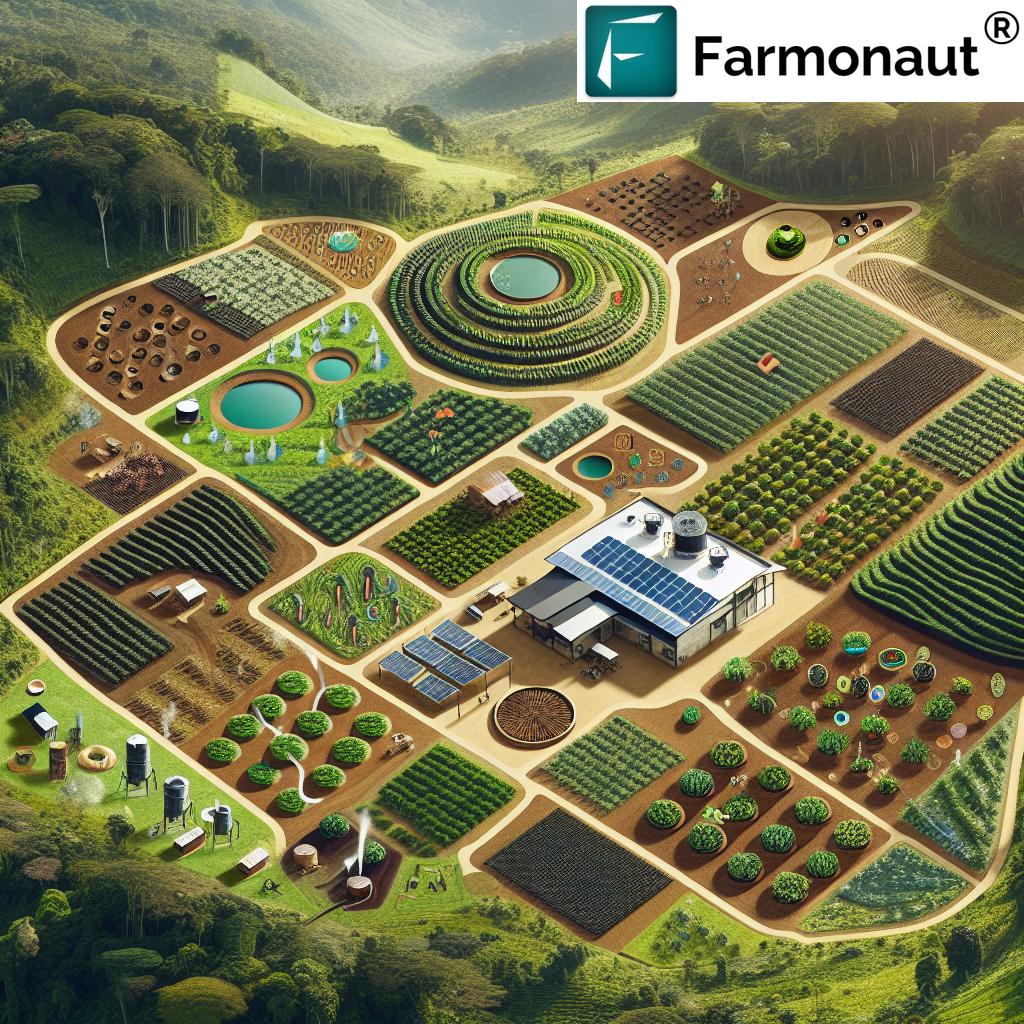
For those interested in leveraging these cutting-edge solutions, Farmonaut offers various access points:
Mobile Apps:
API Access: For developers and businesses looking to integrate Farmonaut’s data into their own systems, API access is available. Learn more at Farmonaut API and check out the API Developer Docs for detailed information.
Regional Approaches to Sustainability: Vietnam and Beyond
While our focus has been on Vietnam, it’s important to note that the push for sustainable coffee production is a global endeavor. Different regions are tackling environmental and social issues in coffee production in unique ways, often influenced by local conditions and challenges.
Let’s take a brief look at how some other major coffee-producing regions are approaching sustainability:
- Costa Rica: Known for its commitment to environmental protection, Costa Rica has implemented national policies that support sustainable coffee production, including a goal to become carbon-neutral.
- Colombia: The Colombian Coffee Growers Federation has been instrumental in promoting sustainable practices and supporting smallholder farmers in adapting to climate change.
- Ethiopia: As the birthplace of coffee, Ethiopia is focusing on preserving its unique coffee genetic diversity while promoting organic and forest-friendly coffee production methods.
- Indonesia: Efforts in Indonesia are centered on reducing deforestation and protecting critical ecosystems, with a focus on agroforestry systems that integrate coffee with native tree species.
These diverse approaches highlight the importance of tailoring sustainability efforts to local contexts while working towards common global goals.
The Road Ahead: Future of Sustainable Coffee in Vietnam
As we look to the future, the path for Vietnam’s coffee industry is clear – sustainability is not just a trend, but a necessity. The challenges posed by climate change, market demands, and regulations like the EU Deforestation Regulation are driving a transformation in how coffee is produced, processed, and traded.
Key areas of focus for the future include:
- Continued investment in research and development of climate-resilient coffee varieties
- Expansion of regenerative farming practices across the country
- Further integration of technology in farm management and supply chain traceability
- Strengthening partnerships between farmers, cooperatives, exporters, and international buyers
- Ongoing efforts to reduce the carbon footprint of coffee production and processing
By embracing these focus areas, Vietnam’s coffee industry is not just adapting to new regulations but positioning itself as a leader in sustainable coffee production. This shift promises not only to protect Vietnam’s rich ecosystems but also to enhance the livelihoods of coffee-growing communities and secure the future of this vital industry.
Conclusion: A Sustainable Coffee Revolution in Action
The sustainable coffee revolution in Vietnam is more than just a response to new regulations – it’s a comprehensive reimagining of how coffee can be produced in harmony with nature and communities. From the implementation of climate-smart agriculture practices to the adoption of cutting-edge technologies like those offered by Farmonaut, Vietnam’s coffee industry is setting a new standard for sustainable production.
As consumers, we play a crucial role in this revolution. By choosing certified sustainable coffee and supporting brands that prioritize environmental and social responsibility, we can drive demand for sustainably produced coffee and contribute to positive change in coffee-growing regions worldwide.
The journey towards fully sustainable coffee production is ongoing, but Vietnam’s progress offers hope and inspiration for the global coffee industry. As we sip our morning brew, we can take comfort in knowing that with each cup, we’re supporting a more sustainable, equitable, and resilient coffee future.
Frequently Asked Questions
- What is the EU Deforestation Regulation?
The EU Deforestation Regulation is a policy aimed at ensuring that products sold in the European Union do not contribute to deforestation or forest degradation. It sets strict traceability and due diligence requirements for commodities like coffee. - How are Vietnamese coffee farmers adapting to new sustainability requirements?
Vietnamese coffee farmers are adapting by implementing climate-smart agriculture practices, participating in certification programs, adopting regenerative farming techniques, and leveraging technology for better farm management and traceability. - What role do certification programs play in sustainable coffee production?
Certification programs provide guidelines for sustainable practices, verify compliance, and help farmers access premium markets. They play a crucial role in driving positive change in coffee-growing regions. - How is technology contributing to sustainable coffee farming?
Technologies like Farmonaut’s satellite-based solutions provide real-time crop monitoring, AI-driven advisory services, and traceability tools. These help farmers optimize resource use, improve yields, and ensure compliance with sustainability standards. - What are some challenges in creating deforestation-free supply chains?
Key challenges include traceability issues in complex supply chains, limited resources for smallholder farmers, balancing productivity with conservation, and coordinating efforts across diverse stakeholders.






